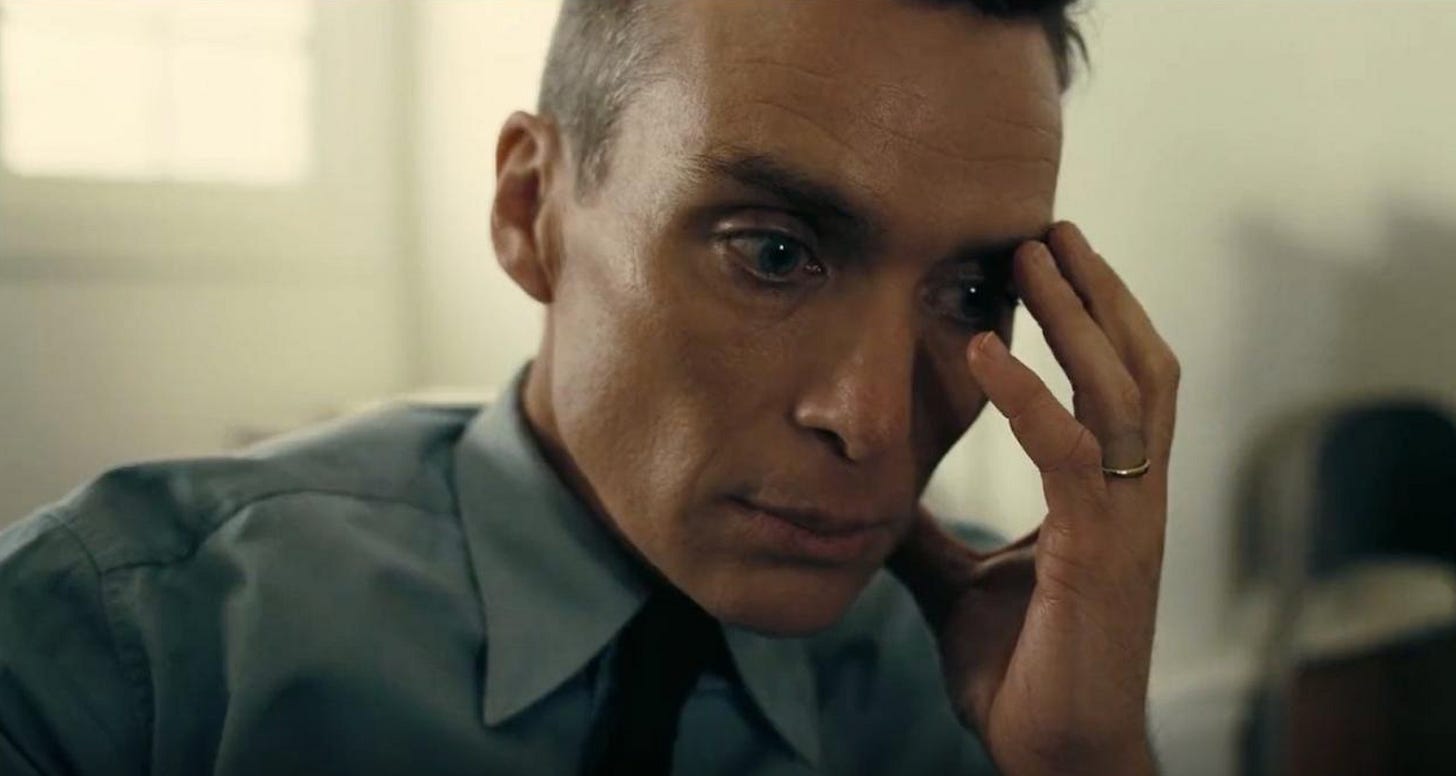I went to see Oppenheimer and all I thought about were the AI bros
and Susan Faludi went to see Barbie
Going to see a movie in Paris is pretty quaint. The French love movies. Many people don’t have TVs at home, alors. Indeed, I just looked this up: Paris has the most cinemas (302) and cinema screens (1,003) in the world. As another factletty aside, the Australian French Film Festival is the largest such international festival in the world. The French often enthusiastically reference this when I tell them I’m Australian.
Three other things.
The cinemas are very cramped and dingy1. But the French tolerance for personal space infringement is honed in terraces daily.
The tickets are cheap. And many employers subsidise movie tickets for their staff, such is the national love and support of film.
It’s a fun way to learn French because there are subtitles on English movies and you can cross reference colloquialisms etc. (“Break a leg” came up on the screen as “merde!”) I’ve not managed to get my life organised enough to start French lessons. But I’ve found that just living in French is the second best option. So I go to super retro calisthenics classes, and say yes to dates with men who don’t speak English well (and watch movies with subtitles), and I’m progressing.
So my new friend Anne and I went to see Oppenheimer, unsubsidised. Anne brought trail mix for the three-hour ordeal. I’m sure many of you have either seen, or read about, the film, so I won’t do a rundown of plot, history, Oscar-worthy performances or how it compares to Barbie. I’ll just draw attention to how the central theme of the movie - Oppenheimer’s moral concern about inventing something that could destroy humanity while simultaneously getting on with inventing that very something that could destroy humanity - parallels the AI mock-moral performance going on in Silicon Valley.
Oppenheimer’s moral wrestle, particularly around the potential development of the far more powerful hydrogen bomb (which builds on from his work), permeates the entire movie as a secondary plot to the story of his life and his building of the atomic bomb. Indeed, this secondary plot presents in black and white and cuts in and out throughout the film.
It’s an obvious wrestle: Is he, the mere scientist who enables the technology, morally culpable for what The Powers That Be (the US Government) then decides to do with it? He seems to deal with the dissonance by turning his moral care to the subsequent development of the H-bomb. He becomes something of an activist, discouraging its development (only after he is fully glorified for making the A-bomb and appearing on the cover of Time magazine for it).
The movie almost answers the ethical question for him - and us - when President Truman, played by Gary Oldman, meets with Oppenheimer in the White House. Oppenheimer complains he has blood on his hands. Truman responds by telling him that no one will blame the scientist who made the bomb, they will blame the person who drops it. Wipes brow.


